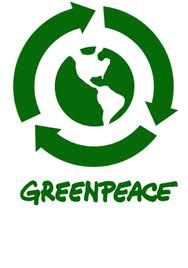 Jakarta, 13 March 2013 – Greenpeace Indonesia today welcomed the launch of a forest conservation pilot project by Indonesia’s largest palm oil producer, Golden Agri-Resources (GAR), to protect High Carbon Stock (HCS) forests and called on other palm oil producers to take similar action.
Jakarta, 13 March 2013 – Greenpeace Indonesia today welcomed the launch of a forest conservation pilot project by Indonesia’s largest palm oil producer, Golden Agri-Resources (GAR), to protect High Carbon Stock (HCS) forests and called on other palm oil producers to take similar action.“Greenpeace commends GAR for putting its Forest Conservation Policy commitment into action. GAR’s initiative is crucial for finally breaking the link between palm oil and deforestation,” said Bustar Maitar, Head of Greenpeace South East Asia’s Indonesia Forest Campaign.
After developing a methodology for defining HCS forests with Greenpeace and global forestry non-profit group The Forest Trust (TFT), GAR will roll out its Forest Conservation Policy to work with local communities and government to conserve forested areas in all concessions that it is currently developing, beginning with PT Kartika Prima Cipta (KPC) in West Kalimantan. This is a global GAR policy, which will also be implemented in the company’s investment in Liberia (GVL) and, providing it is successfully implemented, would set a strong example for future oil palm development in Africa.
”The future of Indonesia’s rainforests hangs in the balance. In less than three months time the moratorium on new concessions in forested areas will expire. The government of Indonesia should see today’s announcement as a strong signal that government, industry and civil society together can turn the tide and protect Indonesia’s forests for the sake of the people and biodiversity that depend on them and for the global climate,” said Bustar.
GAR committed to an ambitious Forest Conservation Policy to prevent deforestation from taking place in its palm oil operations in February 2011 following Greenpeace’s campaign and consumer pressure against deforestation and peatland clearance for palm oil in Indonesia. This policy entails a commitment to not develop areas identified as High Conservation Values (HCV) and peat regardless of depth, and not to develop areas with High Carbon Stock (HCS). Identifying HCS forests required an innovative and robust methodology that has been developed by GAR in collaboration with TFT and Greenpeace and was first presented in June 2012.
Greenpeace calls on other palm oil producers to follow GAR’s initiative rather than hide behind weak legislation and certification systems, such as the Roundtable on Sustainable Palm Oil (RSPO). If the palm oil industry is to erase the bad reputation it has acquired among consumers and financial institutions, it needs to be clear which plantation companies are truly committed to protecting Indonesia’s remaining forests, and those which will continue their destructive practices.
“Consumer product companies that buy palm oil need to support industry leaders that are willing to take bold measures to protect forests and peatland and not simply depend on certification systems that have been struggling unsuccessfully for years to design and implement measures needed to do the same thing,” said Bustar.
